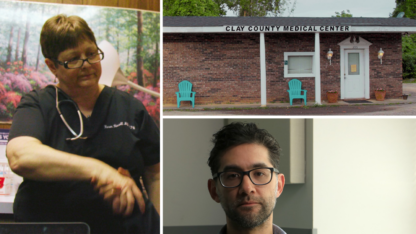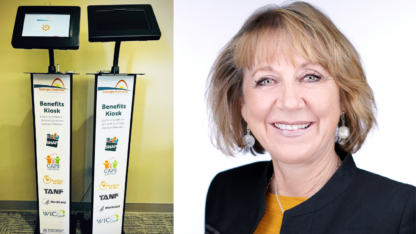Roughly a year into the Medicaid “unwinding,” Georgia is among a dozen states across the United States terminating a higher proportion of children from the program than adults, according to a report from the nonprofit think tank Urban Institute.
The report analyzed monthly U.S. Centers for Medicare and Medicaid Services Medicaid enrollment reports through November 2023.
It found Georgia and 11 other states have so far disenrolled more than 100% of initial projections for children.
“While Medicaid redeterminations are not yet complete, these early data points are consistent with projections that a seismic coverage shift is underway,” said Kathy Hempstead, senior policy adviser at the Robert Wood Johnson Foundation. “The data also show that some states have separated hundreds of thousands of children from their Medicaid coverage, an outcome that was certainly preventable and one that will only further existing health disparities and inequities in the United States.”
The federal government mandated that all states process Medicaid redeterminations following the end of federal COVID-19 public health emergency rules last spring.
Until then, during the coronavirus pandemic, the emergency rules barred states from removing anyone from their Medicaid rolls.
As part of the redetermination process, everyone with Medicaid must now reapply to recertify their eligibility for continued coverage.
In Georgia, that’s around 3.7 million people. Nearly 70% are children.
Georgia officials dispute the characterization in the Urban Institute report.
The proportion of children on PeachCare for Kids has remained steady throughout the unwinding, said Fiona Roberts, Georgia Department of Community Health spokesperson.
“In Georgia, children have been disenrolled at a lower rate than adults and as of January 2024, children still account for 69% of the active Georgia Medicaid population, which has been consistent since the beginning of the unwinding,” she said.
The claim is difficult to independently verify. Monthly state data releases don’t typically provide the number of adults terminated from Medicaid compared to the number of children who have lost PeachCare for Kids coverage.
But according to the Georgetown University Center for Children and Families, child Medicaid enrollment in Georgia has fallen by at least 20 percent.
So far, Georgia has handled renewals for more than 2 million people through gateway.ga.gov.
Of these, the state has terminated 539,893 people for “procedural” reasons, a category that counts everyone who did not complete the renewal process, including for missing deadlines or paperwork issues.
“Per federal guidelines, individuals are disenrolled from Medicaid because they are no longer eligible due to having aged out of PeachCare for Kids (otherwise known as CHIP); having gained employer-sponsored health insurance; having increased income beyond allowable limits; or because information has not been submitted to verify eligibility, among other eligibility criteria,” said Roberts.
Another 99,880 people were deemed ineligible for Medicaid and referred to alternative health insurance options, state data show.
Workers are directing anyone terminated from Medicaid to private marketplace plans through Georgia Access and Pathways to Coverage, the state’s program that offers adults up to 100% of the federal poverty level Medicaid in exchange for completing 80-hour per month work, education or volunteering requirements.
State officials said the agencies overseeing Medicaid redeterminations are continuing outreach to everyone with Medicaid.
“Since summer 2022, we have been actively focused on reaching as many Georgia Medicaid members as possible, especially children, to ensure they are prepared to go through the redetermination process,” said Ellen Brown, spokesperson for the state Department of Human Services.
Still, many Georgians with Medicaid coverage remain confused or are still unaware of the redetermination process, said Deanna Williams, an enrollment assister at the nonprofit Georgians for a Healthy Future.
“During this process, a lot of people are unsure or are still not aware what’s going on with it,” she said. “And some of them just don’t know what’s their next step. And that’s one of the things that I’ve seen the most of.”










